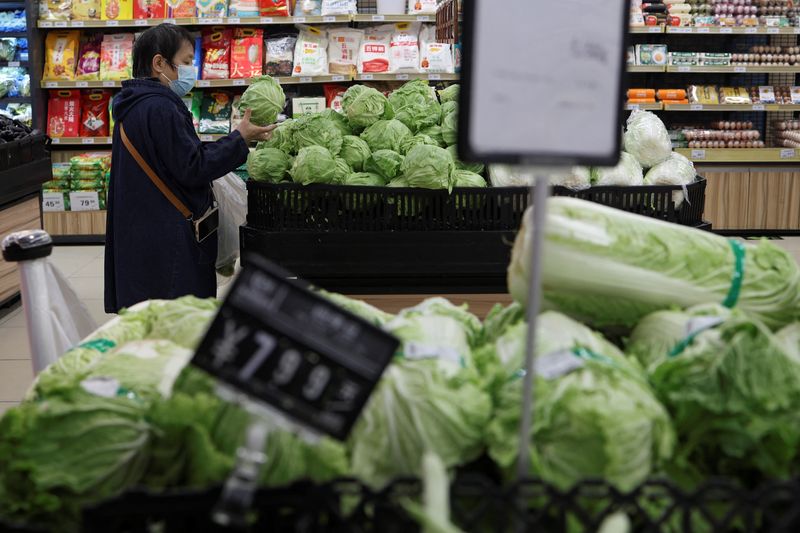By Karl Plume and Renee Hickman
CHICAGO/EVANSVILLE, Wisconsin (Reuters) – American farmers are worried that President-elect Donald Trump’s sweeping tariff plans will curb their access to top soy buyer China, but tariffs could also lure companies to build more U.S. crushing plants, hungry for domestic supplies.
Trump’s plans to roll out blanket import tariffs could slam the door on imported vegetable oil supplies, which renewable energy analysts said could in turn lure the U.S. crush industry to revive lagging plans to build new plants and expand capacity.
Such expansion has faltered over the past year, as the U.S. market was flooded with cheaper global supplies of diesel feedstocks like used cooking oil (UCO) from China, tallow from Brazil and canola oil from Canada.
Now, these supplies are likely targets for Trump’s tariffs while global supplies of other vegoils are tightening and prices climbing, analysts said. USDA data projects that global rapeseed oil supplies will shrink by 13% over the coming year with sunflower seed oil stocks down 24%. Indonesian palm oil shipments have dropped as that country plans to boost biodiesel production next year.
Potential new demand helped send Chicago Board of Trade soyoil futures jumping nearly 6% last week to the highest in seven months, traders said.
Analysts cautioned it remained too soon to know how, or if, the Trump Administration will change President Joe Biden’s law providing a decade of lucrative subsidies for clean-energy projects. Building domestic demand for such crops is key for eating through excess stocks, especially without access to the Chinese export market, agricultural economists said.
Hefty global competition could dent incomes for farmers who just harvested the second-largest U.S. soybean crop ever at a time when crop prices hover near four-year lows.
If tariffs prompt retaliation by global U.S. soybean importers, big soy processors such as Bunge (NYSE:BG) Global and Archer-Daniels-Midland Co could benefit from a larger and likely cheaper supply of beans for them to crush in the U.S., industry analysts said.
“If Trump goes the tariff direction, it is friendly for the U.S. crushing industry and capacity,” said Kent Woods, owner of advisory firm CrushTraders. Woods added that U.S. soyoil demand would also rise if Trump blocks imported oils from benefiting from renewable fuel tax credits.
Farmers in rural Evansville, Wisconsin, were still waiting for the state’s first commercial-scale soybean crushing plant, which had been slated to break ground last year.
For Nancy Kavazanjian and husband Charlie Hammer, the plant would mean an end to the nearly 400-mile round-trip to haul their soybeans to an Illinois buyer.
The savings would be huge, Kavazanjian said. “It’s manpower, it’s fuel and it’s time.”
PROMISE OF RICHES
Soaring vegoil demand from biofuels makers triggered a flood of projects to build new soy processing plants three years ago.
A mix of state and federal programs aimed at boosting lower carbon intensity fuels got a lift from Biden’s Inflation Reduction Act (IRA) climate legislation in 2022. Since 2021, U.S. renewable diesel production capacity soared 200%.
Six new soybean processing facilities or plant expansions in Iowa, Nebraska and North Dakota opened in less than two years. At least four more projects in Nebraska, Ohio, Indiana and Louisiana are slated to launch through 2026.
Yet in about a half-dozen Midwestern towns, the lucrative promise of riches has stalled.
Crushers blame the delays on the flood of biofuel feedstock imports, soaring construction costs and the end of cheap financing as interest rates surged to a 23-year high.
U.S. farmers looking to boost domestic soyoil demand have unsuccessfully tried to get Biden’s Treasury Department to exclude imported biofuel feedstocks from IRA subsidies known as 45Z. It remains too soon to know if Trump will try to alter the IRA’s clean energy provisions or limit imports of used cooking oil, said Susan Stroud, founding analyst at No Bull Ag consulting.
ELECTION RESULTS
Some firms slammed on the brakes on oilseeds plant expansions in order to wait and see how the election will impact biofuels policy. Permitting delays have stalled plant expansions by global oilseeds processor Bunge and joint venture partner Chevron (NYSE:CVX) in Destrehan, Louisiana, and Cairo, Illinois, along with slow approvals by the two companies, Bunge told Reuters.
Industry sources said Bunge scrapped plans to expand its massive plant in Council Bluffs, Iowa. Bunge declined to comment.
Work on United Cooperative’s smaller-scale plant in Waupun, Wisconsin, lagged after construction costs rose and interest rates soared, said Woods of advisory firm CrushTraders.
United Coop CEO David Cramer said it will be online within two years; the only delays were in getting equipment.
Soy processors also expect higher construction costs next year. Tariffs on imported steel and processing plant equipment could prove unpalatable for crushers that have yet to break ground.

Evansville Mayor Dianne Duggan said CHS had spoken about approving construction of the local facility as early as spring of 2023. The plant would be able to crush 70 million bushels of soybeans annually – or about two-thirds of Wisconsin’s total crop production, according to company and government data.
Today, it’s an empty field. CHS said the project is still under consideration.










